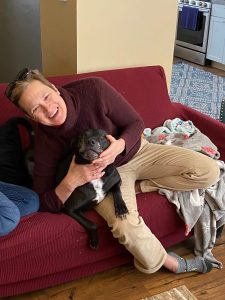How to Avoid the Winter Blues
December 2, 2019
If you’re one of those people who tends to feel a little down during the winter months, you aren’t alone. When it gets colder and darker outside, many people suffer from what is called seasonal depression or Seasonal Affective Disorder (accurately called SAD for short.)
SAD is an extremely common disorder and affects millions of us every year. The good thing, though, is that there are things you can do to help yourself feel better.
Seasonal Affective Disorder is similar to depression, but it occurs at a specific time during the year. SAD can cause symptoms like sadness, less energy, and excessive sleeping. The exact reason this happens is not known for sure, but experts have a few ideas.
One fairly straightforward explanation is simply that sunlight triggers the release of serotonin in the brain, and less sunlight means that reaction isn’t happening as much as it does in sunnier, warmer months. Serotonin is an extremely important chemical in the brain and affects things like mood, weight, sexuality, and even memory to name a few.
If you think you might have SAD, there are things that you can try to alleviate symptoms.
One of the top search results when researching treatment options for SAD is light therapy. Special lamps, sometimes called “light boxes,” use bright light to mimic outdoor lighting that you’d normally get from the sun.
Most are relatively inexpensive and using them is easy and convenient for most people; just turn on the light box and sit near it for 15 to 30 minutes a day when you first wake up.
If light therapy isn’t for you, there are other options. It’s recommended that, if possible, one should get outside early in the morning to try and soak up some sunlight, as well as maintain a balanced diet and exercise routine.
Another tool that can be useful in dealing with seasonal depression is counseling.
A counselor can work with you to help you cope with the symptoms that SAD can bring on. If you feel that you are unable to cope, it’s recommended that you seek help from a medical professional.
There’s even a medication now called Bupropion XL that your doctor can prescribe to help treat the symptoms of Seasonal Affective Disorder. At this time, it’s the only FDA approved drug used to treat SAD.
When the trees are bare, the air is cold and sunlight is scarce, it can be hard to stay positive; thankfully, winter doesn’t last forever and neither does SAD.
Remember to pay attention to your mental health and to ask for help if you need it.
If you or someone you know is struggling with their mental health, free resources like the National Alliance on Mental Illness (1-800-950-NAMI) can help.


